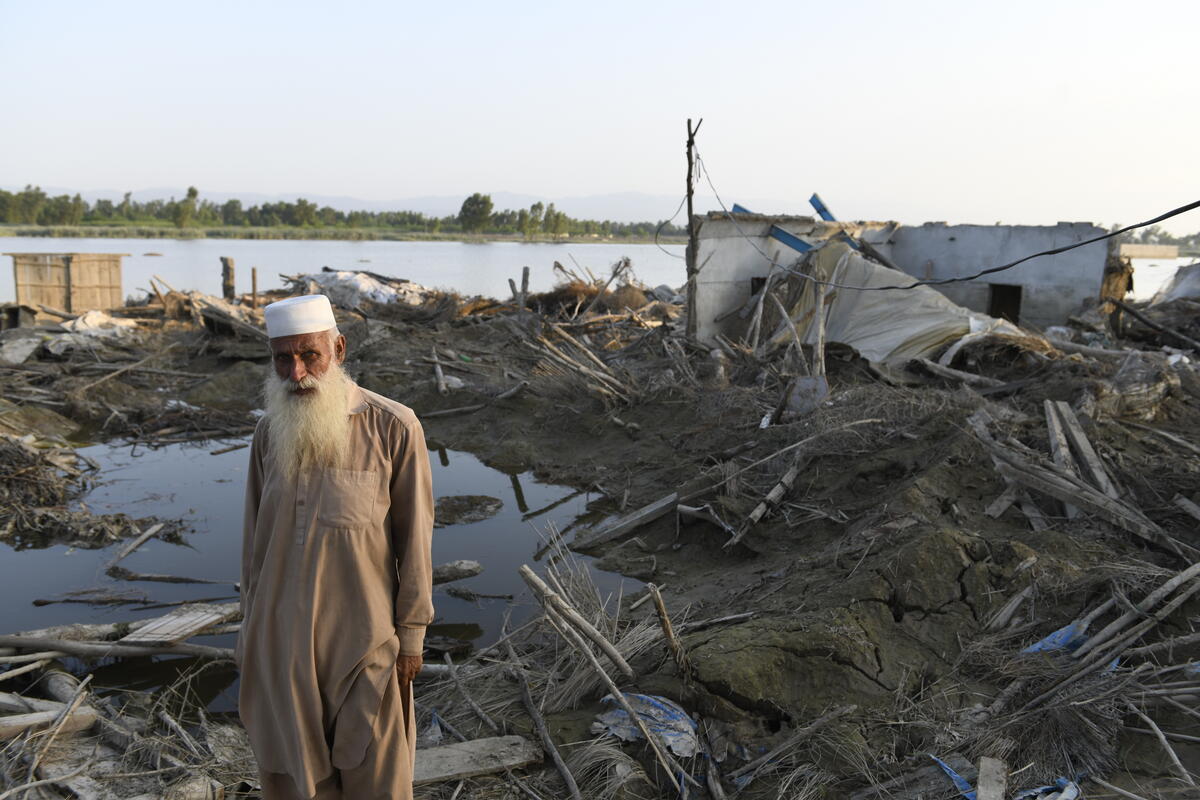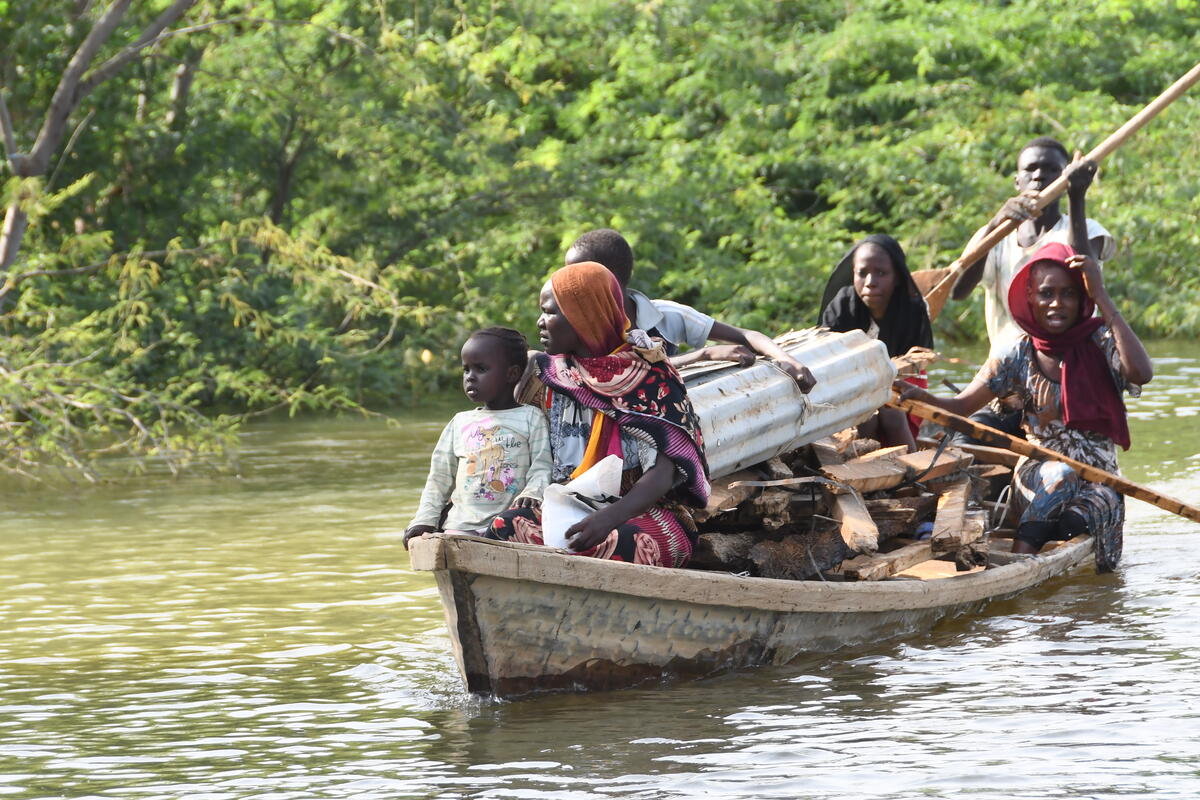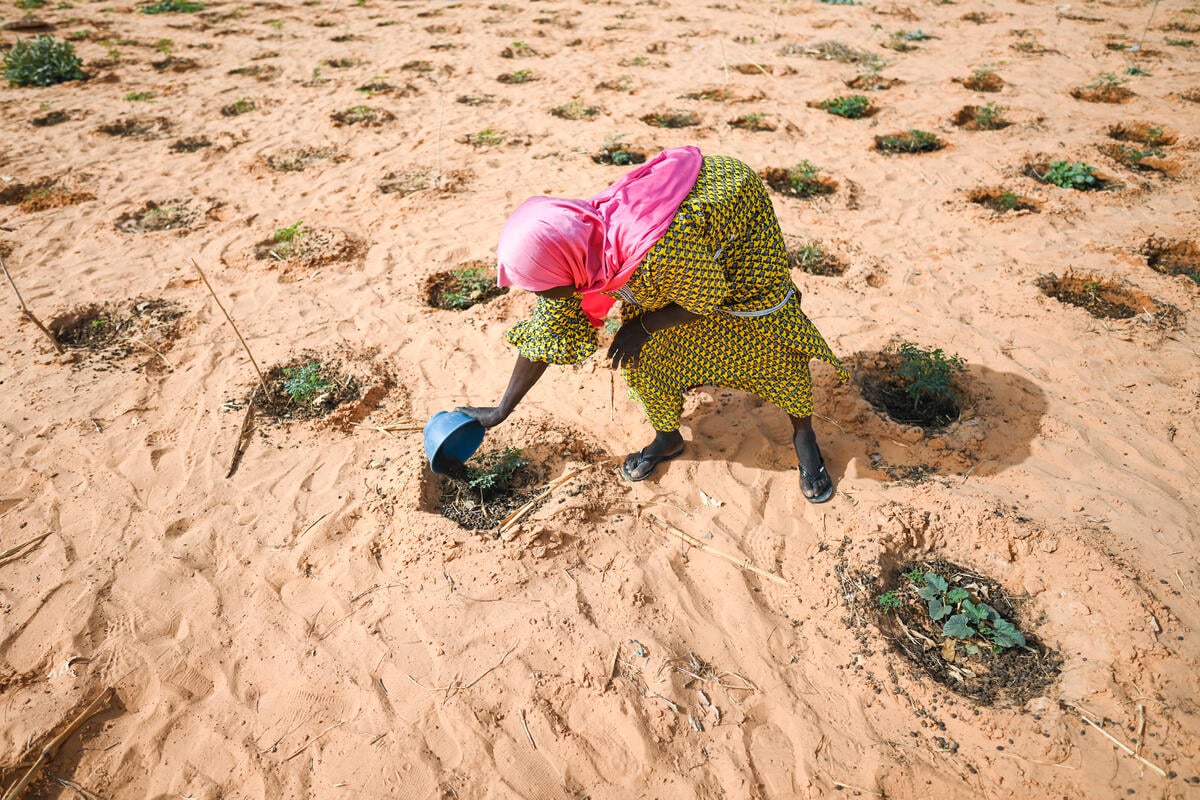For Salvadoran LGBTI people, "At the moment, it's riskier than ever"
For Salvadoran LGBTI people, "At the moment, it's riskier than ever"

Mexican actor Alfonso Herrera, a UNHCR High Profile supporter, talks via videoconference with Grecia Villalobos - a staffer with COMCAVIS TRANS, an LGBTI rights organization based in El Salvador.
In Central America, the violent gangs that control many marginalized communities often single out lesbian, gay, bisexual, transgender and intersex (LGBTI) people – extorting, threatening and sometimes even killing them. LGBTI people in the region often have no choice but to flee their homes in search of safety. Many stay within their own country, becoming part of the internally displaced population.
Grecia Villalobos is a Salvadoran trans woman who works for COMCAVIS TRANS, a UNHCR partner that helps protect the rights of LGBTI people in El Salvador. She met Mexican actor and UNHCR High Profile Supporter Alfonso Herrera last spring when the actor toured UNHCR’s operations in the small Central American country. Herrera portrayed Hernando on Netflix’s hit series Sense8 – a show praised by critics and LGBTI groups for its exploration of sexual and gender identity. He asked Grecia to chat with him by video last month about her work, the risks LGBTI people face in El Salvador and the effects COVID-19 has had on the people she serves.
Below is a partial transcript of their chat, edited for lengthy and clarity.
Herrera: Tell me about yourself, Grecia. Who are you?
Villalobos: I’m a 33-year-old trans woman and the youngest of five children. My dad died when I was eight years old and my mom raised all five of us by herself, working really hard to provide for us the best she could. I always felt like a woman inside, and thanks to my family’s support, I’ve always lived as a woman. Also thanks to my family, I was able to continue my studies and, despite coming from a poor background, I managed to [get a teaching degree]. But in my country it’s unfortunately not possible for a trans woman to work as a teacher – or almost anything else, really, to be honest with you. It’s really hard.
"I always dreamed of working for an organization that fights for the rights of transgender people."
As a trans woman, I’ve seen first-hand how much violence the trans community suffered and I always dreamed of working for an organization that fights for the rights of transgender people. So when I saw there was an opportunity to work with COMCAVIS TRANS, I applied and was thrilled to be selected. Now, I feel very fulfilled because, although I’m not working in the field I studied, I know I’m doing really important work on my community’s behalf.
So to answer your question, I, Grecia Villalobos, am a hard-working trans woman and activist, doing my best to support other people and make them feel safe.

Herrera: Can you tell us a bit about the situation for LGBTI people in El Salvador? What kinds of risks do they face?
Villalobos: The situation in my country is very difficult. We are attacked, abused, discriminated against and stigmatized because of our sexual orientation or sexual identity. We have few professional opportunities, few chances to develop our potential, to study or even to access decent housing. In truth, we have a very hard time to actually be someone in society.
This has always been the case. But since 2019, we’ve seen a rise in the number of murders of transgender people. This series of killings targeting transgender people included the murder of one of our community leaders, who was killed in a very cruel way.
We also know that this widespread hatred against LGBTI people leads to the forced displacement of many members of the community. People are forced to leave their homes and communities to escape extortion by armed gang members, or simply because their neighbours won’t tolerate the presence of an LGBTI person. People who have been displaced are often in need of lots of support, and when they get in contact with COMCAVIS TRANS, they know they are going to find that support.
Herrera: The coronavirus pandemic has caused not only a serious economic crisis but is also threatening the human rights of people around the world. How is it affecting the LGBTI community in El Salvador?
Villalobos: Well, I have to say, Alfonso, that it’s been really complicated – particularly for those living on their own and those who are with families who don’t accept their sexual orientation or gender identity.
Stuck inside with their families, these young people have to deal with constant insults and bullying and even physical violence. Some of them are being beaten up within their own homes. And because of the quarantine measures, they’re unable to escape to somewhere safer. They can’t leave, which means they have to suffer in silence…
Also, because the restrictions are preventing them from working, we’re also seeing LGBTI people who are going hungry, who can’t pay their bills or rent, people who are living in fear of having their utilities cut or being evicted and having to live on the streets. It’s super complicated. At the moment, it’s riskier than ever for LGBTI people.
Herrera: And what kind of help is COMCAVIS TRANS able to provide to these people in the middle of the pandemic?
Villalobos: We at COMCAVIS TRANS haven’t stopped working, despite the fact the restrictions mean that we aren’t able to physically get out to many of the smaller communities we serve. But we’re still in contact with LGBTI people in need. They call us on the phone or get in touch through our social media platforms to talk to us about what they’re going through. And we work from our homes to try to find the best possible solutions to their individual problems. We’re also offering help from our legal advisor and our psychologist because… the stay-at-home measures have caused a lot of mental anguish.
Herrera: Thank you, Grecia, for your really important work. A big hug to you!
Villalobos: Thank you, Alfonso!
Translation from Spanish by Jenny Barchfield in Mexico City.









